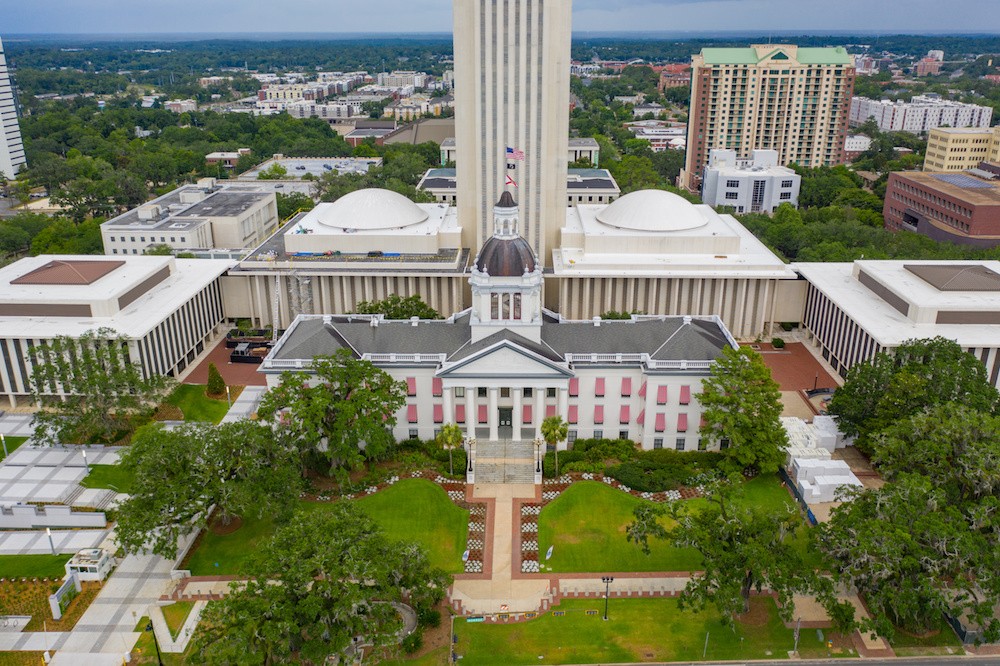Written by: Natalia Brown
It’s time to organize and advocate! The Florida State Legislature is in session, and there are several important bills on the table that could redirect power to our local governments. This is particularly beneficial for plastic waste mitigation and management because local officials can fashion policies that are more relevant to our unique local contexts.
The 2021 Florida Legislative Session began on March 2nd, and it is scheduled to end on April 30th. During this time, state-level House and Senate members meet with their issue-specific committees to discuss bills. Legislators decide which bills will be put on their committee meeting agendas based on how important they determine the different issue areas to be for their constituencies. When residents don’t express their interest in a bill, it’s unlikely to make it very far in the legislative process. There’s a chance that any bill won’t be heard, so potentially beneficial proposals may miss their chance to become state law.
This month, some members of the Debris Free Oceans team logged onto Zoom with hundreds of fellow Floridians to express our support for two plastic-related bills:
One of the biggest obstacles that plastic-free advocates face are preemptions. These laws essentially block local governments from prohibiting the use of certain single-use plastic products. HB 6027/SB 594 Preemption of Recyclable and Polystyrene Materials would repeal the existing preemptions on plastic bags, plastic containers, and polystyrene foam.
→ In 2008, lawmakers passed a bill prohibiting local governments from regulating plastic bags until the Florida Department of Environmental Protection (FDEP) issued recommendations. In 2010, the FDEP completed a detailed report on strategies to discourage the use of single-use plastic bags, but the Legislature still hasn’t acted on those findings.
→ In 2016, lawmakers passed a bill to preempt local regulation of polystyrene foam in food-service-ware. Polystyrene, also known as Styrofoam, is a petroleum-based plastic material commonly used in single-use take-out containers. It is rarely recycled properly, often shows up as litter in our communities, and never biodegrades.
If you’ve been wondering why plastic straws are such a common target for local bans, meanwhile there isn’t as much regulation addressing bags, bottles, or take-out-ware … It’s largely because of these preemptions! If HB 6027/SB 594 were passed, you could expect to see more city and county-level actions taken to manage plastic pollution and reduce non-essential plastic consumption.
It’s important to know that banning non-essential single-use plastics isn’t something we’d be doing on our own. To-date, 127 countries, 400 U.S. cities, and eight states have banned single-use plastic bags (which each affect more producers and consumers at a time than individual city or county-level actions). In the U.S. there’s been some variability in the efficacy of bag bans based on how they are implemented, what alternatives are offered, and what other legislation accompanies the bans. Removing Florida’s preemptions on local regulation is an important first step for local leadership to start addressing the ways that plastic consumption and pollution affect their residents. Our municipalities will likely take action based on local interests, but they can also learn lots from successful policy bundles and programs in other jurisdictions.
The second bill we are supporting is HB 1563/SB 1348 Auxiliary Containers, Wrappings, and Disposable Plastic Bags Used by Retail Establishments. This directs the Florida Department of Environmental Protection to update its plastic bag report and requires the Legislature to act upon the findings of this new study.
As we’ve seen in the recent past, public participation and pressure will be critical to ensure that plastic pollution prevention is prioritized by our state lawmakers.
Ready to take action? Plastic Free Florida has loads of action items, resources, and information about these bills! I encourage you to browse their site and use the tools to build a relationship with your legislators.
Find your FL state representative here. Find your FL state senator here.
You can start with a simple email, phone call, or Zoom meeting. Plastic Free Florida has some sample scripts and prompts to streamline the process, but we encourage you to put your own personal spin on the contents.
Phone calls have been proven extremely effective, and video calls are a great way to forge a more personal, face-to-face connection with your representative(s). Access to digital communication is a major advantage for advocates; neither type of call takes up too much time from your schedule or theirs. Make the most of that privilege, and be sure to encourage your colleagues and neighbors to do the same! Legislators are elected to represent our communities, and they’ll certainly benefit from hearing about what we’ve all experienced and hope for the future of our Sunshine State.



